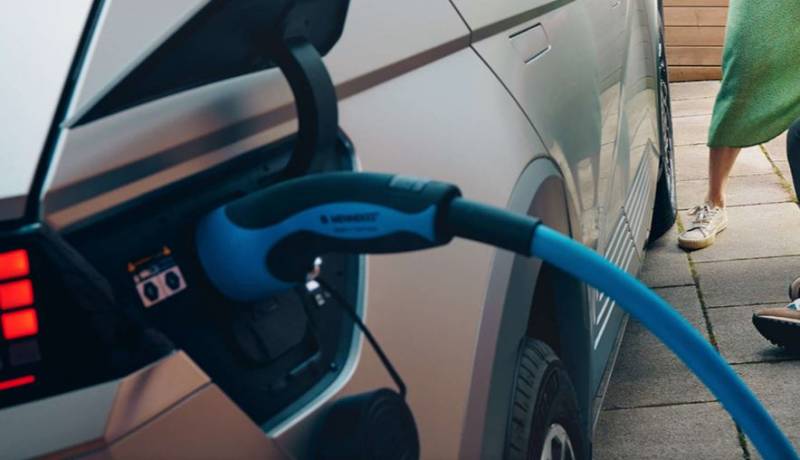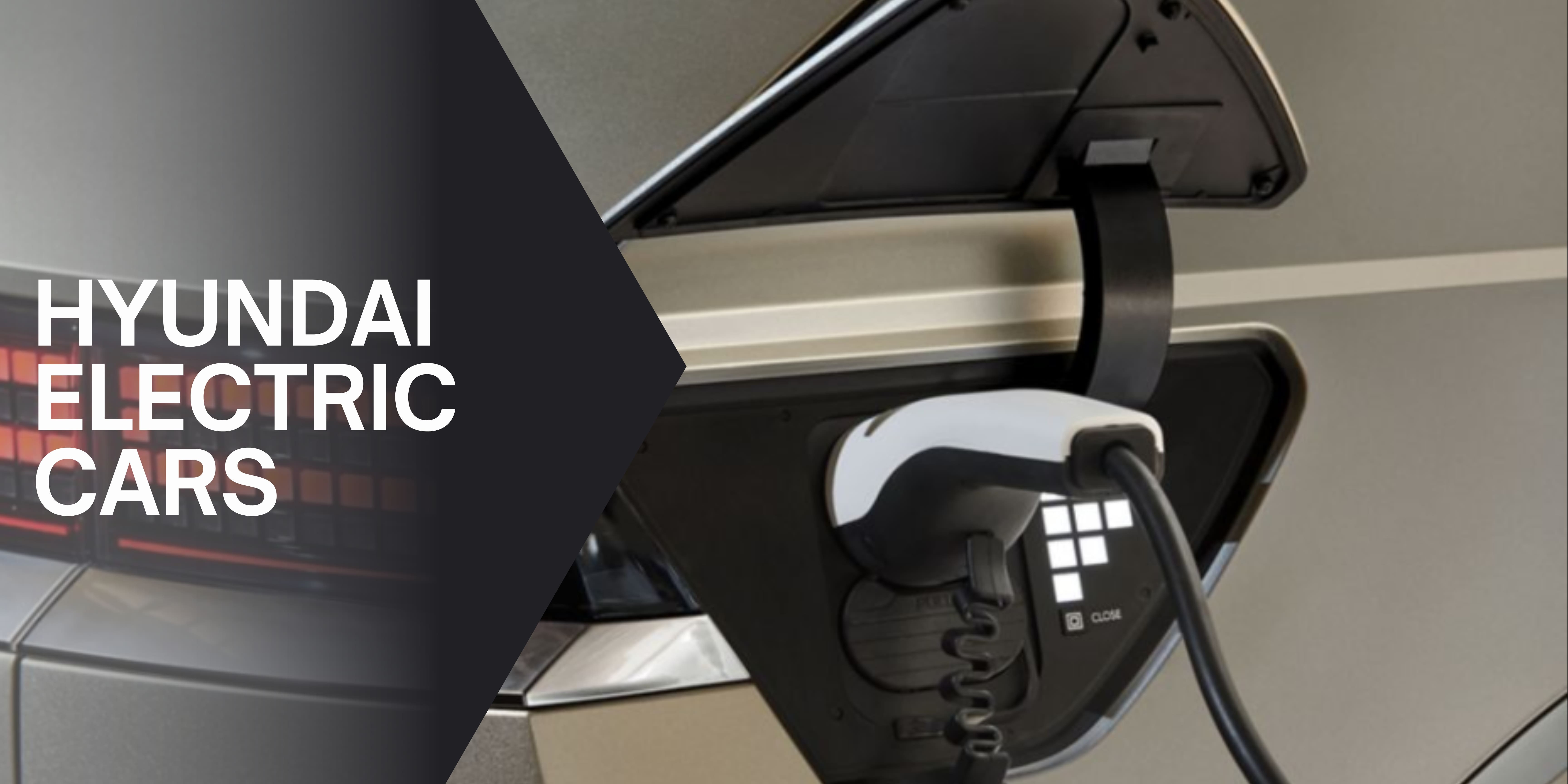Exploring the Range of Hyundai Electric Cars in the UK
As we continue to move towards a more sustainable future, it's no surprise that electric cars are becoming more popular. With their eco-friendly features and sleek designs, they are a great option for drivers who want to reduce their carbon footprint. Hyundai, one of the leading car manufacturers in the world, has a range of electric cars available in the UK. In this article, we will explore the different models and features of Hyundai electric cars and how they can benefit drivers in Bury, Greater Manchester.
Introduction to Hyundai Electric Cars
Electric cars are becoming more mainstream as governments around the world set targets for carbon neutrality. Hyundai has been at the forefront of the electric car movement, with a range of models designed to appeal to a wide variety of drivers. Whether you're looking for a compact car for city driving or a larger vehicle for longer journeys, Hyundai has something to suit your needs.
Benefits of Owning a Hyundai Electric Car
There are several benefits to owning a Hyundai electric car. Let's take a closer look at some of these benefits.
Lower Operating Costs
One of the biggest advantages of owning an electric car is lower operating costs. Electric cars are much cheaper to operate than traditional petrol or diesel cars. Hyundai electric cars, in particular, are known for their efficiency and low energy consumption. According to the company's website, the Kona Electric, for example, can travel up to 300 miles on a single charge. This means that you'll spend less money on fuel and maintenance over the lifetime of the vehicle.
Environmental Friendliness
Another benefit of owning a Hyundai electric car is their environmental friendliness. Electric cars produce zero tailpipe emissions, which means they are much cleaner for the environment than traditional cars. This is particularly important as governments around the world are increasingly implementing stricter emissions regulations to combat air pollution and climate change.
Advanced Technology
Hyundai electric cars are known for their advanced technology. They are equipped with features such as regenerative braking, which helps to recharge the battery while the car is braking, and smart cruise control, which adjusts the car's speed to maintain a safe distance from other vehicles. They also feature high-tech infotainment systems that allow drivers to stay connected and entertained while on the road.
Government Incentives
Many governments around the world offer incentives to encourage the adoption of electric cars. In the UK, for example, buyers of new electric cars can receive a government grant of up to £2,500. This can help to offset the initial cost of purchasing an electric car and make it a more affordable option for consumers.
The Hyundai Electric Car Models Available in the UK
Hyundai offers a range of electric car models in the UK, from small city cars to SUVs. Here are some of the most popular Hyundai electric cars available in the UK:
1. Hyundai Ioniq Electric
The Hyundai Ioniq Electric is a compact hatchback that offers an impressive range of up to 193 miles on a single charge. It is equipped with a 38.3 kWh battery and a 136 hp electric motor that delivers smooth and efficient performance. The Ioniq Electric also features a spacious and modern interior, with advanced safety and connectivity features.

2. Hyundai Kona Electric
The Hyundai Kona Electric is a small SUV that offers a range of up to 300 miles on a single charge, making it one of the most efficient electric cars in the market. It is powered by a 64 kWh battery and a 201 hp electric motor that delivers instant acceleration and a quiet ride. The Kona Electric also features a sleek and sporty design, with a spacious and high-tech interior.
3. Hyundai Tucson Electric
The Hyundai Tucson Electric is a midsize SUV that offers a range of up to 265 miles on a single charge. It is equipped with a 64 kWh battery and a 201 hp electric motor that delivers impressive performance and handling. The Tucson Electric also features a comfortable and well-designed interior, with a range of advanced features such as a panoramic sunroof, wireless charging, and a premium sound system.
What is an Electric Car?
An electric car, also known as an EV, is a vehicle that is powered by electricity rather than petrol or diesel. Electric cars use rechargeable batteries to store the electricity that powers the vehicle's electric motor, which drives the wheels. Unlike traditional cars that rely on combustion engines, electric cars produce no tailpipe emissions and are generally quieter to operate.
How Do Electric Cars Work?
Electric cars work by converting stored electricity into motion. They use rechargeable batteries, which are usually lithium-ion, to store the electrical energy needed to power the vehicle. The batteries are charged by plugging the car into an external power source, such as a charging station or a wall socket.
Once the batteries are charged, the electric motor uses the stored energy to drive the wheels, propelling the car forward. The motor can be powered by either direct current (DC) or alternating current (AC), depending on the car's design.
Electric cars also have regenerative braking systems that convert the kinetic energy generated when the car brakes into electrical energy that is stored in the batteries. This helps to extend the car's range and reduce energy consumption.
Types of Electric Cars
There are three main types of electric cars: battery-electric vehicles (BEVs), plug-in hybrid electric vehicles (PHEVs), and hybrid electric vehicles (HEVs).
BEVs are fully electric vehicles that rely solely on battery power to drive the electric motor. They have a limited range, typically between 100-300 miles, but produce zero tailpipe emissions and are the most environmentally friendly option.
PHEVs combine a battery-powered electric motor with a petrol or diesel engine. They can run on either electricity or petrol/diesel and have a longer range than BEVs, but produce emissions when running on fossil fuels.
HEVs are similar to PHEVs but have a smaller battery and can only operate on electricity for short distances. They use regenerative braking to recharge the battery and have a petrol or diesel engine to extend their range.


